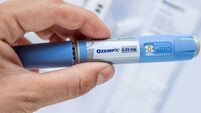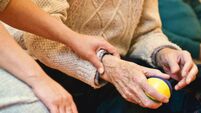Snorers almost twice as likely to have a stroke, study finds

Dr Christine McCarthy said their results suggest sleep problems should be an area of focus for stroke prevention.
People who experience sleep problems are more likely to have a stroke, new research has found.
Problems including getting too much or too little sleep, taking long naps, snoring, snorting, and sleep apnoea are associated with an increased risk of stroke, a global study co-led by the University of Galway has found.













